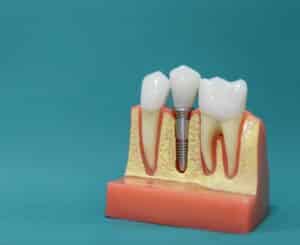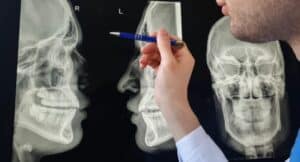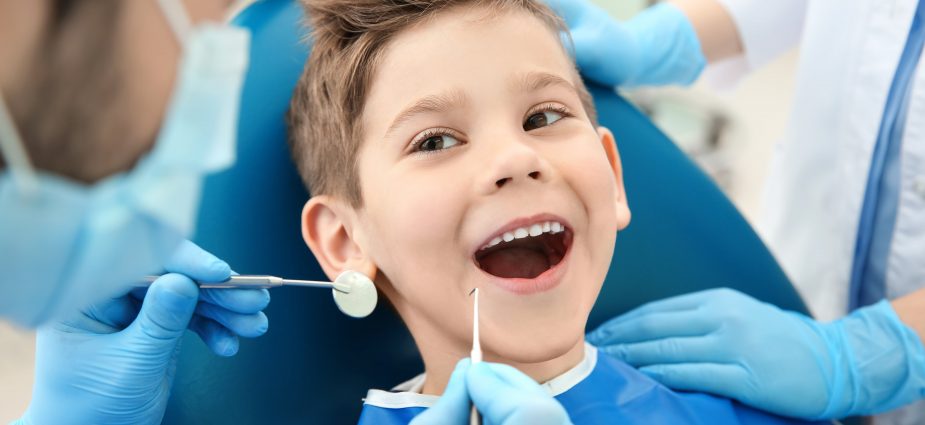What is Corrective Jaw Surgery
Corrective jaw surgery, also referred to as orthognathic surgery, aims to correct and improve the functionality and appearance of the jaw. Generally, corrective jaw surgery is recommended when the primary orthodontic treatments fail or are not enough to achieve the desired result, be it correcting defects or improving appearance. Corrective jaw surgery is recommended to treat asymmetric growth of the jaw, small jaw problems, or issues related to an overgrown jaw.
Why is Corrective Jaw Surgery Recommended?
There are different types of corrective jaw surgery. The most suitable type of surgery is recommended to the patient depending upon her/his needs and requirements. Corrective jaw surgery helps to improve functioning related problems of the jaws like chewing, swallowing as well as it helps to correct asymmetry or deformity of the jaw. Thanks to corrective jaw surgery, many people have experienced life-changing results and drastic improvements in the functioning and appearance of their jaw. Corrective jaw surgery is a good option for most people as it not only gives life-changing results but due to anesthesia and post-operative pain management, it is convenient and not much of a hassle.
What are The Reasons For Corrective Jaw Surgery?
The reasons to get corrective jaw surgery ranges from aesthetic issues to serious disorders related to the jaw. The common reasons to get corrective jaw surgery are as follows:
1. To Improve Functionality Of The Jaw: There are many issues related to the jaw that hamper the normal functioning of the mouth, cause problems in day-to-day tasks, and make daily life difficult for many.
- A misaligned jaw is one such problem that causes biting issues, chewing problems, abnormal speaking, and even breathing problems in many cases. To effectively restore the normal functioning of the jaw and get rid of the problems that occurred due to it, corrective jaw surgery is a popular option.
2. As A Solution To Certain Disorders: Along with the misaligned jaw, there are certain disorders like Obstructive Sleep Apnea (OSA), TMJ that often occur due to problems related to the jaw.
- People who have small jaws naturally have narrower airways which contribute to Obstructive Sleep Apnea (OSA). Therefore, to enlarge the airways and improve breathing, corrective jaw surgery is recommended. Corrective jaw surgery has shown maximum benefit in patients with moderate to severe sleep apnea.
- People with TMJ disorder tend to unknowingly grind their teeth which causes a lot of pain, discomfort, leading to issues like facial pain, headaches, difficulty in moving jaw muscles, earaches, chewing issues, etc. Corrective jaw surgery is often recommended for TMJ if the other primary/ traditional options are not giving any significant results.
Patients who undergo corrective jaw surgery witness a drastic improvement in chewing, swallowing, and overall functioning related to the jaws.
3. To Improve Appearance: Many people have asymmetrical jaw or other jaw issues like protruding lower jaw, chin deformities, gummy smile facial appearance which may lead to issues like lower self-esteem, low confidence, etc. Corrective jaw surgery is an effective solution to improve the overall appearance of the face. The following types of corrective jaw surgery help to aesthetically enhance one’s facial appearance:
- Maxillary Osteotomy (Le-Fort 1 Osteotomy): This jaw surgery is performed to correct defects related to the upper jaw like receded or protruding upper jaw. This surgery is recommended for people with gummy smiles as it significantly improves the smile line. Along with a smile line, this surgery also improves nasal appearance and teeth show issues.
- Bi-Maxillary Osteotomy: This surgery is beneficial for people who struggle with severe jaw alignment issues that affect the aesthetics as well as the functioning of the mouth and face. It is also recommended for people with complicated jaw anomalies, facial asymmetry, facial deformity due to trauma as through this surgery one can improve aesthetics as well as functions such as eating/breathing/speech, etc.
- Genioplasty: Genioplasty is a surgical procedure performed to correct the deformities of the chin. Often it is performed simultaneously with Mandibular Osteotomy. These procedures will help define the jawlines and make them look more beautiful.
To know more about the types of corrective jaw surgery and their benefits, click here.
Why Are Consultations Important For Corrective Jaw Surgery?
As there are many different types of corrective jaw surgery to fix certain disorders as well as a variety of problems related to the functionality and appearance of the jaw, mouth, or face, it may get confusing to people as to how to analyze the exact problem and understand the reason as to why the doctor has recommended a particular type of corrective jaw surgery to them. That’s why consultations are of utmost importance.
At Pandit Clinic, Dr. Vikram Pandit analyzes the issue at hand. The course of treatment required right from the orthodontic treatment to the surgical part is discussed. You will be explained all of the procedures that are required for correction of the jaw and their outcomes. You will also be shown a before-after analysis of your face through our software which will help you understand what the consequence of the surgery will be.
At Pandit Clinic, we have state-of-the-art VECTRA software which includes a 3D camera, so patients can have some idea about the changes that will happen during surgery.
To read more about how corrective jaw surgery is performed at Pandit Clinic, click here.
Important Questions To Ask During Corrective Jaw Surgery Consultation:
Pandit Clinic prioritizes patient safety and this is the reason consultations are given utmost importance by Dr. Vikram Pandit. Consultations are the perfect time for you to ask any and all queries that you have regarding your treatment plan. If you are not sure about what questions to ask during your corrective jaw surgery consultation, the following are some recommended questions that are necessary and important to ask your doctor:
- What is my treatment plan?
- What are the alternatives to the surgery?
- Why is corrective jaw surgery recommended to me?
- Which type of corrective jaw surgery is the most suitable for me and why?
- What is the procedure of this surgery?
- How is recovery after this surgery?
- What kind of results should I expect from this surgery?
- What are the risks and complications associated with this surgery?
- What precautions should I take for a safe and speedy recovery?
- How much experience do you have in performing this surgery?
If you have any queries or doubts regarding Corrective Jaw Surgery, then feel free to book a consultation with Dr. Vikram Pandit where he will be happy to provide you with his expert guidance and resolve all your doubts!
How Is Corrective Jaw Surgery Performed?
Meet the Doctor
BDS, MDS Oral & Maxillofacial Surgeon
Dr. Vikram is a visiting consultant and consultant oral and maxillofacial surgeon at the top hospitals in Pune like Poona Hospital and Research Centre, Ratna Memorial Hospital, Pandit Clinic and KEM Hospital. Dr. Vikram has done clinical fellowship in craniofacial surgery with focus on surgery for cleft lip and palate deformities, orthognathic surgery and surgery for sleep related disordered breathing (SRDB). He has trained for advanced management for Facial Trauma, from Taiwan. He has also attended various seminars and done workshops related to Oral and Maxillofacial Surgery. Dr. Vikram is also a co- author of a chapter for a textbook. He has been invited as a speaker for number of conferences in India as well as Internationally.
Book Consultation

Consult Dr Vikram Pandit
Oral & Maxillofacial Surgeon
Book a consultation with Dr Vikram Pandit. At the consultation, Dr Vikram Pandit will:
- Dr. Vikram Pandit will first perform a thorough examination of your teeth, gums and jaw.
- Explain the problem to you.
- An X-Ray of your teeth will be taken if needed.
We recommend you openly discuss your concerns with Dr. Vikram.
During the consultation be prepared to discuss:
- Your medical conditions, drug allergies, and previous dental treatments.
- Current medications, vitamins, herbal supplements, if any.
- Likely outcomes, and any risks or potential complications.
You Might Be Interested In

Dental Implants To Replace Missing Teeth
Tooth loss can be due to many reasons, but the most common reasons are decay, infection, and trauma. Cavities, also called tooth decay or caries,

Facial Fractures: Causes And Treatment
Introduction The face is one of the most visible parts of our bodies and any injuries sustained can have a significant impact on our appearance.









